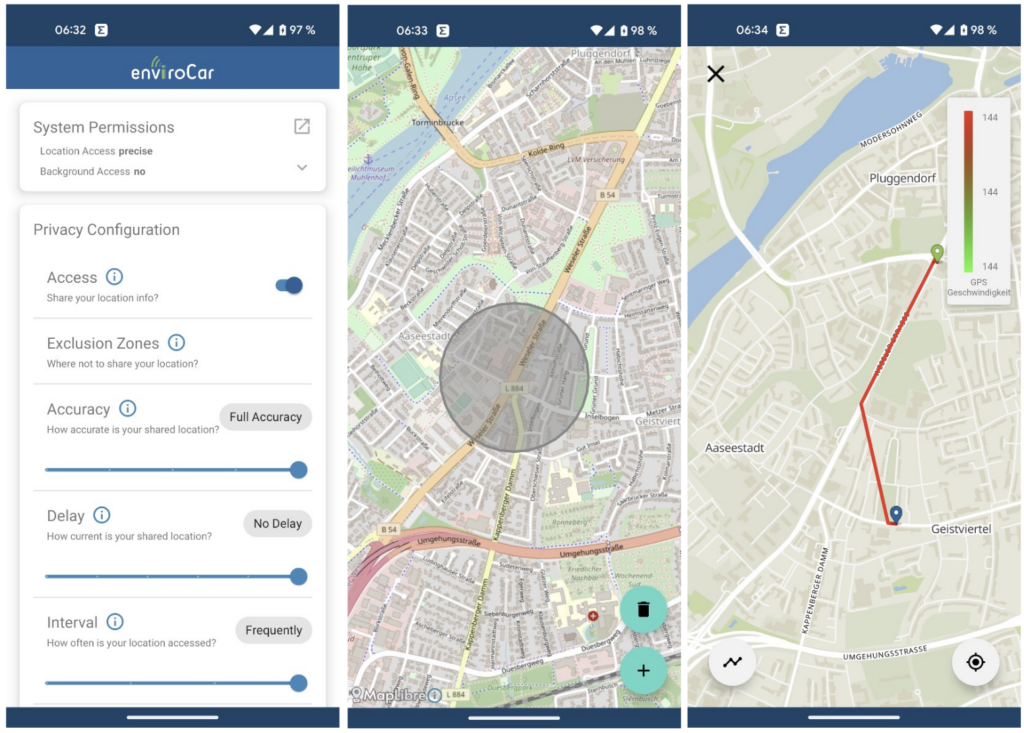Sovereign and Intuitive Management of Personal Location Information
Raising awareness for privacy in location information
The majority of cell phone users are unaware of how their cell phone’s GPS location history can lead to deep conclusions about their activities, place of residence, inclinations, beliefs or social networks. The SIMPORT project aimed to raise awareness as well as design and implement measures to better protect the privacy of location information. 52°North participated in the SIMPORT project as a subcontractor of the Institute for Geoinformatics (University of Münster, Germany).
The consortium members worked to develop guidelines and software modules to confidentially handle personal location information on a mobile device. They cooperated with partners from the industry to create open source software components to enable digital sovereignty with regard to personal location information. Users of these components can clearly visualize possible conclusions about their personal location information and better assess the advantages and disadvantages of passing on this information. Consequently, users know of the risks precisely when they have to decide whether or not they want to share their personal data.
In close cooperation with computer science and the social sciences, the researchers analyzed how to improve awareness of risks and opportunities and to develop fine-grained control options for the transfer of personal location information. This strengthens the competence and sovereignty of smartphone users when deciding about their personal data. An overview of the research within the project is available in the article “Linking location privacy, digital sovereignty and location-based services: a meta review” (https://doi.org/10.1080/ 17489725.2023.2239180).
In 2023, the partners continued to develop and improve the various concepts created during the project, such as the SIMPORT learning app, which raises awareness for location history and the conclusions that can be drawn from it. 52°North’s main focus was on the development of the enviroCar LPT app – a dedicated version of the original enviroCar Android app that includes the features of the location Privacy Toolkit. This toolkit provides access to the device location, but gives the user full control over accuracy and resolution. As part of a Google Summer of Code project mentored by 52°North, the integration of the toolkit was implemented and tested. After internal evaluation, it was finally released to the public via the Google Play Store.

Partners
Institute for Geoinformatics, University of Münster, Germany
FH Münster, Germany
HERE Deutschland, Germany
re:edu, Germany
Universität Osnabrück, Germany
